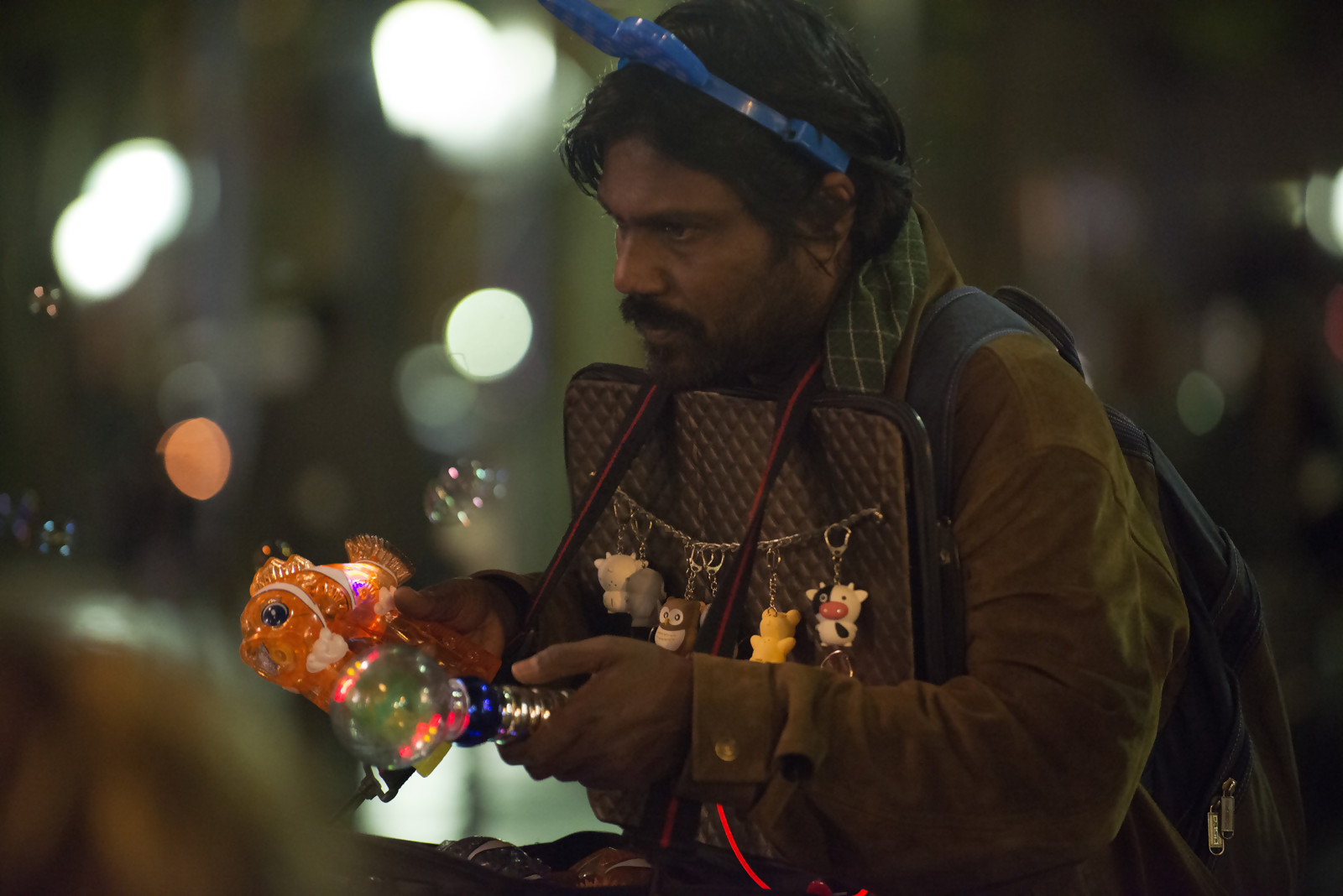Dheepan
by Cat McAlpine
When you recommend this film, do not lead with “French, subtitled.” Though an accurate description on both counts, the association of moody cigarette smoking would do little to represent the raw heart of Dheepan.
Dheepan is a Tamil freedom fighter (called Tigers) who flees as the war begins its bloody close. Having lost his own wife and daughters, he must travel with Yalini (26) and Illayaal (9), posing as family to secure asylum in France.
These three strangers become dependent on one another for the facade that protects them. Unfortunately, fleeing Sri Lanka makes only minor improvements in their livelihoods, and the makeshift family discovers that war comes in sizes great and small.
Writer/director Jacques Audiard (A Prophet) is hyper-aware of light, using both color and shape to carve out living, breathing moments. Dheepan battles his monsters in a red-lit basement room. An elephant sways slowly in the dappled light of the forest. Yalini leaves the door open while she showers, and the blue light from the bathroom flickers teasingly.
This is the vision that truly guides the narrative, finding those quiet moments in-between the gruesome truths of war, gangs, poverty, immigrants, and trying to love someone you do not know.
The camera work, too, defines these moments. The close-up seems to be a favorite of Audiard, but it is not misused in context. The camera betrays when Dheepan’s world feels small and when it feels large. The watcher often feels like they are peering into rooms where they were not invited.
Jesuthasan Antonythasan’s Dheepan is stoic, contemplative, and yearning. You can feel his need for anything simple and real. His violence is believable and earned. Kalieaswari Srinivasan as Yalini builds a curious fear of the world and people around her. She is rarely likable, but always enthralling. That’s the humanity in Audiard’s characters, they are more real because they are less likeable, but this can make Dheepan harder to watch.
The film could lose 20 or 30 minutes, or at least appropriate it to the more aggressive scenes. Beautiful and real though it is, there are long periods where not much happens. Its pinnacle violence is gruesome and triumphant, leaving you wanting more. But a lust for violence is precisely what Dheepan and his family have been running from.

